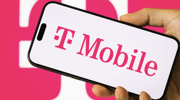16 billion leaked logins: Could yours be one of them?
- Replies 0
A quietly unfolding threat is making cybersecurity experts uneasy—and for good reason.
Recent research uncovered a digital stockpile so large, it raises questions about how protected our everyday accounts really are.
With so many people now relying on online tools for banking, shopping, and even communication, this new report couldn’t come at a more critical time.
The findings didn’t come from one event, but from years of build-up—and the numbers are too big to ignore.
Researchers from Cybernews have discovered that more than 16 billion login credentials have been leaked online.
These logins, which include email addresses and passwords, are believed to have come from multiple breaches compiled over the years—not a single isolated hack.
The records were organized into 30 different exposed datasets, according to the new report.
Though there may be duplicates, the sheer number suggests that billions of individual credentials could be floating online without their owners knowing it.

Many of these stolen logins are believed to have come from platforms widely used across the globe—including email services, cloud storage, and online shopping portals.
It’s possible some of your own passwords are included in the mix, especially if you’ve reused them or haven’t updated them in a while.
The method of theft points to a persistent and hard-to-detect threat: “infostealer.”
This form of malware silently infects devices and collects personal data—including saved usernames and passwords.
These types of malware are often used to gather massive amounts of personal information over time.
What’s more troubling is that these stolen credentials are then traded or leaked in dark corners of the internet.
Also read: Are your personal details at risk? Massive AT&T hack leaks 86 million records including Social Security numbers
While the researchers did not publicly list all the affected platforms, they did confirm that major tech providers such as Google, Facebook, and Apple were part of the compiled leaks.
The report notes: “It's impossible to tell how many people or accounts were actually exposed.”
Even if your credentials were not part of this specific discovery, the trend is worrying.
It highlights just how often these breaches occur—and how quickly our data can become someone else’s tool.
Cybersecurity professionals have emphasized that this kind of data leak could be used for a range of crimes.
Also read: Government officials thought their data was secure until it wasn’t—are you safe?
Insurance providers like Erie Insurance, Philadelphia Insurance Companies, and Aflac all reported major data compromises in the past month alone.
Aflac confirmed that attackers gained access to customers' personal information, though the extent of the data accessed is still under review.
Experts say the threat level is growing—and so is the sophistication of modern hacking techniques.
One cybersecurity analyst told Cybernews that data stolen in past leaks is often reused in new attacks.
This chain effect means that even old passwords, if not changed, can still cause damage years later.
Start by changing your passwords immediately, especially for your email, banking, and online shopping accounts, and avoid using the same password across multiple platforms.
Use a password manager or passkey to create and store strong, unique passwords for each login.
Enable multifactor authentication wherever possible, which adds a second layer of security, like a text code or biometric scan, to prevent unauthorized access even if a password is stolen.
Read next: A new threat shakes trust in a major insurer’s security system

Have you checked if your credentials have been compromised recently? Have you tried using a password manager or switched to passkeys? Share your experience or ask questions in the comments—let’s keep each other informed and safe.
Recent research uncovered a digital stockpile so large, it raises questions about how protected our everyday accounts really are.
With so many people now relying on online tools for banking, shopping, and even communication, this new report couldn’t come at a more critical time.
The findings didn’t come from one event, but from years of build-up—and the numbers are too big to ignore.
Researchers from Cybernews have discovered that more than 16 billion login credentials have been leaked online.
These logins, which include email addresses and passwords, are believed to have come from multiple breaches compiled over the years—not a single isolated hack.
The records were organized into 30 different exposed datasets, according to the new report.
Though there may be duplicates, the sheer number suggests that billions of individual credentials could be floating online without their owners knowing it.

Researchers from Cybernews have discovered that more than 16 billion login credentials have been leaked online. Image Source: Kevin Ku / Unsplash
Many of these stolen logins are believed to have come from platforms widely used across the globe—including email services, cloud storage, and online shopping portals.
It’s possible some of your own passwords are included in the mix, especially if you’ve reused them or haven’t updated them in a while.
The method of theft points to a persistent and hard-to-detect threat: “infostealer.”
This form of malware silently infects devices and collects personal data—including saved usernames and passwords.
These types of malware are often used to gather massive amounts of personal information over time.
What’s more troubling is that these stolen credentials are then traded or leaked in dark corners of the internet.
Also read: Are your personal details at risk? Massive AT&T hack leaks 86 million records including Social Security numbers
While the researchers did not publicly list all the affected platforms, they did confirm that major tech providers such as Google, Facebook, and Apple were part of the compiled leaks.
The report notes: “It's impossible to tell how many people or accounts were actually exposed.”
Even if your credentials were not part of this specific discovery, the trend is worrying.
It highlights just how often these breaches occur—and how quickly our data can become someone else’s tool.
Cybersecurity professionals have emphasized that this kind of data leak could be used for a range of crimes.
Also read: Government officials thought their data was secure until it wasn’t—are you safe?
Recent cyberattacks: A worrying trend
To make matters worse, this data leak comes on the heels of recent high-profile cybersecurity breaches.Insurance providers like Erie Insurance, Philadelphia Insurance Companies, and Aflac all reported major data compromises in the past month alone.
Aflac confirmed that attackers gained access to customers' personal information, though the extent of the data accessed is still under review.
Experts say the threat level is growing—and so is the sophistication of modern hacking techniques.
One cybersecurity analyst told Cybernews that data stolen in past leaks is often reused in new attacks.
This chain effect means that even old passwords, if not changed, can still cause damage years later.
What can you do to protect yourself and those around you?
Cybersecurity experts continue to recommend strong cyber hygiene practices, especially for older adults, who are often targeted.Start by changing your passwords immediately, especially for your email, banking, and online shopping accounts, and avoid using the same password across multiple platforms.
Use a password manager or passkey to create and store strong, unique passwords for each login.
Enable multifactor authentication wherever possible, which adds a second layer of security, like a text code or biometric scan, to prevent unauthorized access even if a password is stolen.
Read next: A new threat shakes trust in a major insurer’s security system
Key Takeaways
- Cybersecurity researchers from Cybernews discovered 16 billion leaked login credentials compiled into 30 large datasets online.
- The data was stolen gradually from multiple sources over time, not from a single event, and may include duplicates.
- Infostealer malware is believed to have harvested most of the credentials by accessing saved login data from users’ devices.
- Experts recommend changing passwords, using password managers, enabling MFA, and checking exposure via breach tracking tools.






